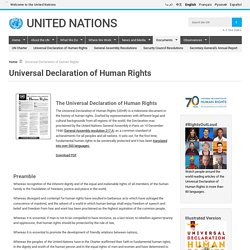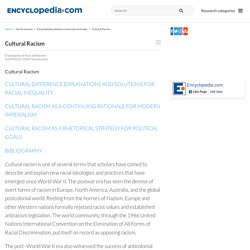

The Power of Oratory in the United States. Epic Databases. Unesco. Universal Declaration of Human Rights. Preamble Whereas recognition of the inherent dignity and of the equal and inalienable rights of all members of the human family is the foundation of freedom, justice and peace in the world,

Human Rights Act 1993 No 82 (as at 01 March 2017), Public Act Contents. Religious Prejudice - Dictionary definition of Religious Prejudice. One night in June 1942, fourteen-year-old Samuel Goetz (1928–) watched in disbelief as his parents were taken forcefully from their home at gunpoint by men, German special agents, he had never seen.

The Goetz family members were Jews living in Tarnow, Poland. For the previous few months, Sam and his friends watched as the life they had always known changed dramatically. As Jewish children, they no longer could attend school. Parks, movie theaters, skating rinks, and entire parts of their town were closed to Jews. Sam would never see his parents again. By the year 2005, a Shiíte Muslim family from Tarmiya, Iraq, had not left their home for a month. Both the Shiíte Muslim family from Iraq and the Goetzes from Poland were victims of religious prejudice. Different religions have different beliefs, practices, and leadership structure. African american civil rights. Hazara. Genocide Watch Home Page. Campaign - Minority Rights Group. Cultural Racism - Dictionary definition of Cultural Racism. Cultural racism is one of several terms that scholars have coined to describe and explain new racial ideologies and practices that have emerged since World War II.

The postwar era has seen the demise of overt forms of racism in Europe, North America, Australia, and the global postcolonial world. Reeling from the horrors of Nazism, Europe and other Western nations formally rejected racist values and established antiracism legislation. The world community, through the 1966 United Nations International Convention on the Elimination of All Forms of Racial Discrimination, put itself on record as opposing racism. The post–World War II era also witnessed the success of anticolonial movements; the dismantling of old colonial, racist structures; and the emergence of newly independent nations, such as India, with strong commitments to equality and social justice.
Scholars have struggled to understand the apparent stubborn persistence of racial inequality (Harrison 1995; Mullings 2005). Blind.” Search Te Ara. The Black Past: Remembered and Reclaimed. Civil Rights Movement - Black History. The civil rights movement was a struggle for social justice that took place mainly during the 1950s and 1960s for blacks to gain equal rights under the law in the United States.

The Civil War had officially abolished slavery, but it didn’t end discrimination against blacks—they continued to endure the devastating effects of racism, especially in the South. By the mid-20th century, African Americans had had more than enough of prejudice and violence against them. They, along with many whites, mobilized and began an unprecedented fight for equality that spanned two decades. Jim Crow Laws During Reconstruction, blacks took on leadership roles like never before. In 1868, the 14th Amendment to the Constitution gave blacks equal protection under the law. To marginalize blacks, keep them separate from whites and erase the progress they’d made during Reconstruction, “Jim Crow” laws were established in the South beginning in the late 19th century. World War II and Civil Rights Rosa Parks Sources. Racism. Britannica - Racism. Racism, also called racialism, the belief that humans may be divided into separate and exclusive biological entities called “races”; that there is a causal link between inherited physical traits and traits of personality, intellect, morality, and other cultural and behavioral features; and that some races are innately superior to others.

The term is also applied to political, economic, or legal institutions and systems that engage in or perpetuate discrimination on the basis of race or otherwise reinforce racial inequalities in wealth and income, education, health care, civil rights, and other areas. Such institutional, structural, or systemic racism became a particular focus of scholarly investigation in the 1980s with the emergence of critical race theory, an offshoot of the critical legal studies movement. Since the late 20th century the notion of biological race has been recognized as a cultural invention, entirely without scientific basis. Read More on This Topic.